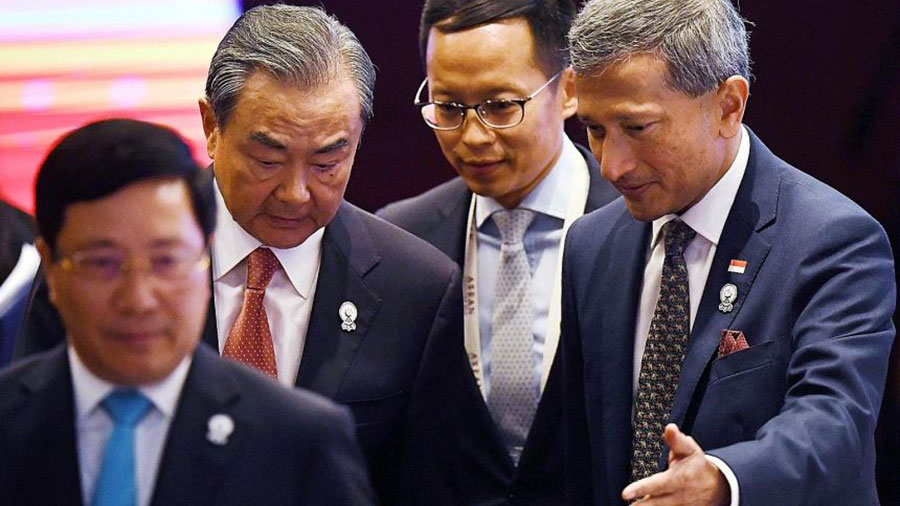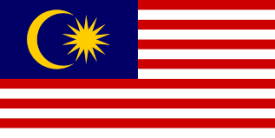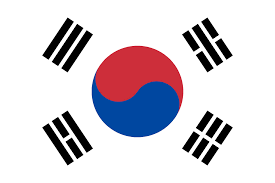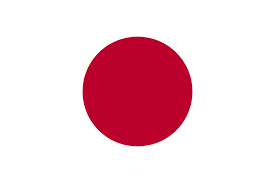RCEP Foreign Ministers Meet China’s Foreign Minister in Fujian: Reports & Analysis

Op/By Chris Devonshire-Ellis
- Foreign Ministers of Indonesia, Malaysia, Philippines, Singapore, Japan, and South Korea Hold Individual Discussions
- Australia and New Zealand’s Membership Of Five Eyes Puts RCEP Trade Participation In Doubt
- East Asia To Be The Hub Of Global Trade Growth
China’s Foreign Minister and State Councilor Wang Yi has been a busy man this year, taking in trips to Africa, ASEAN and the Middle East while hosting Russia’s Foreign Minister in Beijing.
This past Easter week, four ASEAN Foreign Ministers together with South Korea’s Foreign Minister visited China to meet with Wang Yi in Fujian Province. Wang also had a virtual discussion with his Japanese counterpart.
In this article we provide the official statements, which can be a bit dry but are of political academic interest. My possibly more insightful analysis of the meetings follows at the end of the article.
Singapore : China Expresses ASEAN Support

China and Singapore on March 30 expressed their willingness to deepen pragmatic cooperation and further develop bilateral relations. The agreement was made when Chinese State Councilor and Foreign Minister Wang Yi held talks with his Singaporean counterpart Vivian Balakrishnan in Nanping City, Fujian Province. Noting that last year marked the 30th anniversary of the establishment of diplomatic relations between China and Singapore, Wang said China is willing to strengthen strategic communication, deepen pragmatic cooperation with Singapore, and make joint efforts to maintain regional peace and stability and to improve global governance.
Wang said the two countries should work together to oppose “vaccine nationalism” and prevent “vaccine divide,” calling for both sides to jointly upgrade the level of China-ASEAN relations.
China supports ASEAN to uphold the principles of non-interference in internal affairs and help cease chaos and resume stability in Myanmar in the ASEAN way, Wang added.
Balakrishnan congratulated the Communist Party of China on the 100th anniversary of its founding, adding that Singapore is willing to exchange views with China on the upgrading of the ASEAN-China Free Trade Agreement, and to enhance the level of cooperation between ASEAN and China.
Malaysia: A Five Point Consensus

On April 1, 2021, State Councilor and Foreign Minister Wang Yi held talks with Malaysian Foreign Minister Hishammuddin Hussein in Nanping City, Fujian Province.
Wang Yi said that China and Malaysia are good neighbors who have lived in friendly relations for millennia, good partners of Belt and Road cooperation, and good brothers fighting the COVID-19 pandemic hand in hand. As the bilateral relations keep growing, there is a huge potential for the cooperation between the two sides. After comparing notes on fully promoting China-Malaysia relations and practical bilateral cooperation in the post-pandemic period, and having thorough communication on regional and international situations, the two countries reached the following five-point consensus.
First, we need to initiate the work of the high-level committee on China-Malaysia cooperation, and make plans to promote bilateral cooperation in the post-pandemic period. This is the most important outcome of this visit, and the latest development of China-Malaysia relations as well. Under the concerted efforts of the two sides and other regional countries, significant progress has been made in pandemic prevention and control in the region, and a new journey of recovery and development in the post-pandemic period has started. In the face of new circumstances and new tasks, China and Malaysia need to get off to a good start. The two foreign ministers have signed a memorandum of understanding. The two countries will jointly lead this important mechanism and get back on our feet by taking the opportunity of China’s new development paradigm and Malaysia’s comprehensive economic recovery to deepen the alignment of development strategies, and advance high-quality Belt and Road cooperation, in order to seize development opportunities in the post-pandemic period, push economic and social development of the two countries back to normal, and facilitate faster and better development of the two countries and the region.
Second, we need to continue to deepen vaccine cooperation. COVID-19 vaccine has become a potent weapon to overcome the pandemic, and the focus of international anti-pandemic cooperation. Different batches of semi-finished Chinese vaccines have arrived in Kuala Lumpur, and Malaysia will become the second country of the region to cooperate with China in vaccine filling after Indonesia. It signifies the vaccine cooperation between the two countries has been elevated to a new level. Vaccine cooperation between China and Malaysia will benefit more people in the region, effectively improve the accessibility and affordability of COVID-19 vaccines and help reject vaccine nationalism with practical actions. The two sides are willing to accelerate the establishment of “fast tracks” for personnel exchanges, and negotiate on mutual recognition of health code, to realize wider and more efficient personnel exchanges, and bring back the regular people-to-people exchanges between the two countries.
Third, we need to continue to promote regional cooperation. This year marks the 30th anniversary of China-ASEAN dialogue relations. China and Malaysia will jointly hold successful celebrations of the anniversary, improve the level of China-Malaysia strategic partnership, promote the early entry into force and implementation of the Regional Comprehensive Economic Partnership, and share the benefits of a free trade zone and economic integration of the region. China firmly supports the ASEAN centrality, and is willing to work with the ASEAN countries including Malaysia to carry forward the multilateralism with East Asian characteristics, sustain a mature structure of regional cooperation, and promote long-lasting and common development of East Asian countries.
Fourth, we need to jointly maintain peace and stability of the South China Sea. As important costal countries of the South China Sea, China and Malaysia agree on the reinforcement of marine dialogue and cooperation and proper management of differences. We need to continue to strengthen our determination and overcome interruptions, fully implement the Declaration on the Conduct of Parties in the South China Sea, create enabling conditions amid the pandemic and promote offline consultations on the Code of Conduct in the South China Sea in a flexible manner. The two sides agree to formulate substantive and effective rules which are consistent with international law including the United Nations Convention on the Law of the Sea at an early date, to better maintain peace and stability of the South China Sea.
Fifth, we need to support multilateralism and sovereign equality and oppose unilateralism and interference in internal affairs, and establish international relations of mutual respect, fairness, justice, and win-win cooperation. The pandemic has once again proved that all countries are a community with a shared future. We should abandon zero-sum thinking and ideological biases and join hands to tackle common risk and challenges faced by all human societies in the spirit of openness, tolerance, and equality. As important developing countries and emerging economies of the region, China and Malaysia are willing to work together with regional countries and the rest of the world to uphold real multilateralism, safeguard international fairness and justice, and promote the building of a community with a shared future for mankind.
The Philippines: Seeking South China Sea Resolutions

Chinese State Councilor and Foreign Minister Wang Yi held talks with his Philippine counterpart Teodoro Locsin on April 2 in Nanping City, Fujian Province.
Wang said China is willing to continue to promote vaccine cooperation with the Philippines, calling on both sides to solidly advance the high-quality Belt and Road cooperation and endeavor to complete key projects on schedule.
“China is willing to work with the Philippines to further enhance the level of trade liberalization and facilitation and explore cooperation in emerging areas such as cross-border e-commerce,” Wang said. He also expressed China’s willingness to work with ASEAN countries, including the Philippines, to promote the early implementation of the Regional Comprehensive Economic Partnership (RCEP) agreement, to implement the Declaration on the Conduct of Parties in the South China Sea fully and effectively, to accelerate consultations on the Code of Conduct in the South China Sea, to maintain stability in the region.
Locsin said his country is committed to further developing bilateral relations, and thanked China for its strong support to the Philippines in fighting the epidemic, particularly the aid and provision of vaccines.
China’s provision of vaccines is not to carry out “vaccine diplomacy,” but to demonstrate its responsibility, Locsin said, adding without China’s support, it will be difficult for the region and the world to recover from the epidemic.
He congratulated China on being elected as a member of the United Nations Human Rights Council from 2021 to 2023 and looked forward to strengthening coordination and cooperation with China within the framework of the Human Rights Council.
Indonesia: Upgrading Investment Quality

Chinese State Councilor and Foreign Minister Wang Yi held talks with Indonesian Foreign Minister Retno Marsudi, on Friday April 2, and both sides expressed willingness to further advancing bilateral cooperation.
Noting that China and Indonesia are major developing countries and representatives of emerging economies, Wang said both sides share broad common interests and similar development concepts.
Strengthening bilateral strategic communication and deepening mutually beneficial cooperation is not only of great significance to the respective development of the two countries, but also has a positive impact on the region and the whole world, Wang said.
He said that China stands ready to work with Indonesia, following the direction set by the two heads of state, to continue deepening the synergy of strategies, enhance practical cooperation, strengthen coordination and cooperation on regional and international affairs, and contribute more to the stability and development of Asia and the world in the post-pandemic era.
Wang said China and Indonesia joined hands to fight the COVID-19 pandemic, which set an example of cooperation among developing countries. “China is deepening cooperation on vaccines with Indonesia and discussing the establishment of a mutual health-code recognition arrangement to promote the availability and affordability of vaccines in developing countries,” he said.
Wang also expressed hope that Indonesia will actively support the implementation of China’s “spring sprout” program in Indonesia.
Wang called on the two countries to enhance cooperation on the digital economy, big data, cloud computing, 5G, and smart city construction to inject new impetus into their high-quality economic development.
He called for advancing cooperation in the fields of navigation safety, marine environmental protection, maritime search and rescue as well as fishery.
Wang said that China is willing to discuss with Indonesia the establishment of a bilateral comprehensive economic partnership.
Wang said China stands ready to work with ASEAN countries including Indonesia to promote the early entry into force and implementation of the Regional Comprehensive Economic Partnership.
Retno said Indonesia and China have always maintained close cooperation in various fields. He added that Indonesia looks forward to furthering cooperation on vaccines with China, jointly promoting major project construction in the post-pandemic era, and expanding cooperation on trade, investment, fisheries, and infrastructure construction. Retno said Indonesia supports deepening cooperation between the ASEAN and China.
South Korea: Denuclearisation

Chinese State Councilor and Foreign Minister Wang Yi on Saturday held talks with his counterpart from the Republic of Korea (ROK) Chung Eui-yong in Xiamen, east China’s Fujian Province.
Noting that China and the ROK are neighbors forever, Wang said the two countries took the lead in establishing an anti-epidemic cooperation mechanism, in launching a fast track for personnel exchanges, and in resuming work and production cooperation.
“China-ROK relations have stood the test of COVID-19, and the friendship between the peoples of the two countries has been further strengthened in the joint fight against the epidemic,” he added.
Wang noted that China and the ROK will hold the Year of Cultural Exchange in 2021, while next year marks the 30th anniversary of diplomatic relations between the two countries.
He said that China is willing to work with the ROK to advance the process of political settlement of the Korean Peninsula issue through dialogue, jointly safeguard the international system with the United Nations as the core and the international order based on international law, jointly defend multilateralism, jointly expand and deepen the integration of interests to promote bilateral relations to new levels.
“China is willing to maintain close communication with the ROK at all levels, strengthen the strategic dialogue between foreign ministries, launch the committee for future development of China-ROK relations as soon as possible, and work with the ROK to prepare for the 30th anniversary of the establishment of diplomatic ties between the two countries,” Wang said.
He added that the two sides should continue to make good use of joint prevention and control and the “fast-track lane” mechanisms to consolidate and expand their anti-epidemic cooperation results.
Pointing out that China and the ROK are highly integrated and have become a community of interests, Wang said that China is willing to work with the ROK to accelerate synergizing of development strategies and third-party market cooperation, and to complete the second-phase negotiation process of the China-ROK free trade agreement at an early date.
The two countries should focus on strengthening cooperation in fields such as 5G, big data, the green economy, artificial intelligence, integrated circuits, new energy and the health industry, so as to forge a partnership of high-quality cooperation, he said.
“Both sides should work hard to expand the people-to-people exchanges between the two countries and deepen mutual understanding and friendship,” he added.
China welcomes the ROK to send a delegation to participate in the Beijing Winter Olympics, and is willing to work with the ROK to promote the smooth implementation of the Regional Comprehensive Economic Partnership (RCEP) and join hands to address the challenges of climate change, Wang said.
He said that all parties should make active efforts to maintain peace and stability on the peninsula, effectively resolve the legitimate concerns of the Democratic People’s Republic of Korea, establish a permanent peace mechanism on the peninsula through dialogue and negotiation, and realize the complete denuclearization of the peninsula.
“China is willing to maintain communication and expand consensus with the ROK, and expects the ROK side to play a constructive role in this regard,” Wang added.
Noting that the ROK and China are neighbors with a shared history and culture, and that China is the ROK’s largest trading partner and an important strategic partner, Chung said the ROK attaches great importance to developing relations with China.
Chung congratulated the Communist Party of China on the 100th anniversary of its founding, adding that the ROK hopes to intensify high-level exchanges with China, strengthen cooperation in various fields and take the 30th anniversary of the establishment of diplomatic ties as an opportunity to promote the greater development of bilateral relations.
Chung said the ROK and China have set a good example for international cooperation on epidemic prevention and control, and added that the ROK side appreciates China’s efforts to promote personnel exchanges between the two sides in the context of the epidemic, and hopes to further strengthen bilateral cooperation in the post-epidemic period.
Noting that the ROK is committed to improving inter-Korea relations, realizing the denuclearization of the Korean Peninsula, and establishing a permanent peace mechanism on the peninsula, Chung said the ROK appreciates and expects China to continue playing an important role in the affairs of the peninsula.
The two sides agreed to hold a new round of strategic dialogue at the ministerial level between the diplomatic departments of the two countries in the first half of this year.
The two countries’ first round of 2+2 diplomatic and security dialogue at the vice-ministerial level will also be held.
China and the ROK agreed to establish a committee for the future development of bilateral relations at an early date, and also agreed to start preparations for the celebration of the 30th anniversary of the establishment of diplomatic relations between the two countries.
The two sides agreed to strengthen coordination on establishing a mechanism for reciprocal recognition of health certificate QR codes issued by one another.
They vowed to advance vaccine cooperation and further expand the scope of beneficiaries of the “fast track” that facilitates the exchange of visits.
The ROK said it supports China’s Spring Sprout plan that helps inoculate Chinese citizens abroad with Chinese vaccines.
The two sides agreed to jointly host the “China-ROK Year of Cultural Exchange” to enhance mutual understanding and friendship between the two peoples.
In multilateral areas, they agreed to jointly safeguard multilateralism and promote the early enactment of the RCEP.
They also vowed to promote cooperation between China, Japan and the ROK, and join hands in tackling climate change.
The ROK said it welcomes China’s proposal to join the Comprehensive and Progressive Agreement for Trans-Pacific Partnership free trade pact.
China supports the ROK in hosting the 2024 Winter Youth Olympic Games, and the ROK supports China in hosting the 2022 Beijing Winter Olympic Games.
The two sides also had an in-depth exchange of views on international and regional issues of common concern.
They all agreed that in the current situation, it is timely and necessary to strengthen strategic communication between China and the ROK.
Japan

Japan should view China’s development with a more positive mentality, said Chinese State Councilor and Foreign Minister Wang Yi on Monday (April 5) in a phone conversation with Japanese Foreign Minister Toshimitsu Motegi.
Wang said that China’s development has not only enabled the Chinese people to live a better life, but also made positive contribution to promoting regional stability and prosperity.
Practice has proved that China’s development is a growing force for world peace, a favorable factor for promoting international cooperation and an important opportunity for Japan’s long-term economic development, Wang said.
China is always aware of its international obligations, Wang said, and firmly supports the international system with the United Nations at its core, firmly supports international rules based on international law, firmly supports true multilateralism and firmly safeguard international fairness and justice.
China does not interfere in other countries’ internal affairs, nor does it allow other countries to interfere in China’s internal affairs, Wang noted, adding that what China upholds is not only its own sovereign rights, but also the basic norms of international relations.
The will of some superpower does not represent that of the international community, and a few countries following this superpower have no right to monopolize multilateral rules, said Wang.
The law of the jungle will prevail in the world where one cannot distinguish right from wrong doing if some countries, under the guise of multilateralism, are wild about bloc politics or major-country confrontation, or even arbitrarily impose unilateral illegal sanctions on others based on false information, he said, adding that that situation will be a disaster for the vast number of small and medium-sized countries, and the majority members of the international community will not allow that to happen.
Wang said that only the Chinese people are entitled to decide what China should do, and that cannot be decided according to the preferences of some foreign countries.
He also said that all countries, which all have the right to choose a development path suited to their own national conditions, ought to manage their own domestic affairs first, and work together to meet the common global challenges at the same time.
Analysis:
China is making strong diplomatic and trade overtures to the major RCEP nations, with the primary objective of securing the RCEP Free Trade Agreement that also includes all the ASEAN nations, Japan, South Korea, Australia, and New Zealand. Concerning ASEAN, Wang had visited Myanmar, Brunei, Indonesia, and the Philippines in January. There are five main points that can be gleaned from these most recent meetings:
Localised Issues, Myanmar & Covid
The official meetings were held individually between Wang and his respective counterpart, rather than a collective discussion, although it is unclear whether further ‘behind the scenes’ debates took place with everyone in attendance. Therefore, the meetings were able to both avoid being seen as an ‘official’ gathering of RCEP nations, although in some practical terms, that is exactly what it was. This format also allowed Wang to individually discuss localized issues such as the recent coup in Myanmar. Wang had met with Aung San Suu Kyi just ten days before the military coup, while Myanmar is about to become the ASEAN-China coordinator from 2021-2024. That may now change.
China-bilateral Covid support was also individually discussed as per the specific reports above, as were issues relating to the South China Sea, and especially with Malaysia and the Philippines. The latter especially has been highly critical of Beijing’s position, yet China will be attempting to smooth things over to promote harmony within the RCEP nations.
Regional Trade Development
Wang discussed further upgrading the ASEAN-China Free Trade Agreement, a specific bilateral comprehensive economic partnership with Indonesia, and in all meetings urged the completion of RCEP. Emphasis was put on digital, 5G, green and enhanced levels of investment and a move away from the ‘plastic bucket’ level of manufacturing that will instead find new homes elsewhere.
RCEP E-commerce Incentives
Just prior to these meetings, on March 30, the Guangzhou Municipal Bureau of Commerce published ‘Several Measures for Guangzhou to Grasp the Opportunity of RCEP to Promote the Innovative Development of Cross-Border E-Commerce’.
The “Several Measures” makes it clear that the export tax refund (exemption) policy will be implemented for goods exported from overseas warehouses by Cross-Border E-Commerce (CBEC) enterprises, and the pilot “duty-free without ticket” and the verified tax collection policy of enterprise income tax will be promoted for CBEC retail export goods.
The B2B export goods of CBEC should be inspected first, while the customs clearance procedures of export goods should be supported through the declaration list to simplify the declaration elements. The newly listed CBEC enterprises in the domestic and foreign stock markets and the CBEC enterprises listed in the domestic and foreign stock markets and who establish operation headquarters in Guangzhou will be rewarded and subsidized in accordance with relevant policies. The measures came into force with immediate effect on March 29, 2021 and remain valid for three years. It can be expected that other regions in China will also seek to promote investment and provide incentives for businesses from RCEP countries within the digital and e-commerce areas.
Five Eyes, RCEP, Australia & New Zealand
The Foreign Ministers of Australia and New Zealand, although part of the RCEP agreement were not invited to meet Wang, showing China’s annoyance at their involvement in the US-led ‘Five Eyes’ network, which also includes Canada, the United Kingdom and the United States. Their recent meetings have provoked China’s ire, which sees the grouping as unrepresentative of a ‘global alliance’ and wishes instead to have global security concerns administered by the United Nations, where China has a veto. Japan has also been mooted as a potential new member of Five Eyes, which is probably why their inclusion in these talks was limited to a telephone conversation, mainly dealing with Chinese unhappiness at Japan following ‘superpower rules’ as opposed to a global order. That conversation certainly revolved around this theme.
However, Japan is an important member of RCEP and China cannot afford to isolate it in terms of trade and technological development. That however cannot be said of Australia or New Zealand, whose relations with China have plummeted. China probably can afford to isolate both, with Australia’s population not dissimilar to that of Sri Lanka’s, being a relatively small consumer market by Chinese standards, while New Zealand’s population is smaller than that of many Chinese cities. Australia, which has been a major source of mineral resources for China, may well find itself completely out of the China trade loop and especially as China sourcing has now expanded considerably across the Belt and Road Initiative.
The United States may in time find itself as Australia’s de facto Protective State and major trade partner, effectively lifting the country out of the Asia play that it had so prominently stated it was part of in the 1980’s. The fact that neither Australia or New Zealand were invited to attend shows that China is prepared to minimize their RCEP status. Neither have ratified the RCEP deal either, meaning that the meetings between Wang Yi, ASEAN, Japan and South Korea perhaps point to an ‘RCEP-lite’ being considered and doing away with the Australian and New Zealand components. That message has very strongly been delivered.
An Asian Union
China’s view of an external world is firstly a coordination of building the Asian Region, with the initial first step being East Asia. That includes RCEP, based on a Chinese economic core with a strong currency bringing in significant East Asian investment, spreading outwards elsewhere to Asia and along the Belt & Road Initiative. It is in effect designed to become a de-facto Asian Union, based on trade and currency, initiated and headquartered in East Asia (China).
The economic development plan is built around creating core energy, transport and communications infrastructure that then enables commercial development to take place across the region, then regions, and then continents, and linking continents. The infrastructure is contemplated on a transcontinental basis, and then commerce, and urbanisation, initially on a local, then regional, then continental basis. The question for countries such as Australia, New Zealand and further afield is quite simple: to be part of that or not?
This scenario is much farther progressed than most in the West understand. Later, once the RCEP agreement has been settled down, we can expect China to turn West towards a Shanghai Cooperation Organisation Bank, and specific SCO development funds coming into play. The meetings with the RCEP Ministers last week are just the beginning of what is starting to come into focus as regards China’s new influences.
Related Reading
- What is the Ratification Status of the RCEP Agreement and When Will it Come into Effect?
- Asian Summits Result In US$186 billion RCEP Free Trade Agreement
- New RCEP Free Trade Agreement Rules of Origin to Boost Finishing of Products Investment into Cambodia, Laos & Myanmar
About Us
Silk Road Briefing is written by Dezan Shira & Associates. The firm has 28 offices throughout Asia, and assists foreign investors into the region. For strategic advisory and business intelligence issues please contact the firm at silkroad@dezshira.com or visit www.dezshira.com





